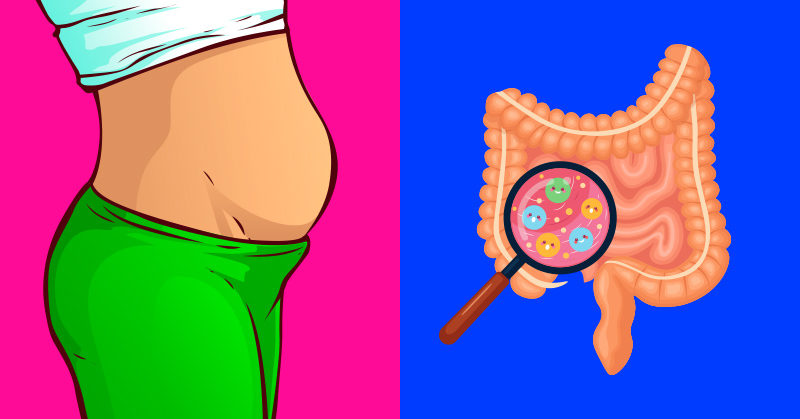There are many positive aspects of getting older. You have more life experience to make you more confident in who you are, and you’re typically more well-established and financially secure. Of course, it has its drawbacks, particularly when it comes to your physical health. While good eating habits are always important, they become even more crucial for this reason. When you’re in your forties and beyond, your body may not react to food the same way as it did in your twenties and thirties. Luckily, good eating habits can help you avoid certain age-related health problems.
Good Eating Habits After Forty

After forty, your metabolism and your nutrition needs can change. Try adopting some (or all) of the following eating habits to maintain your health as you age.
Related: Your Bones Are Getting Weaker Year After Year, but There Are Ways to Keep Them Healthy
1. Eat Often

As you age, your metabolism begins to slow down. This means that the rate at which you break down food decreases, making it easier for you to gain weight. Reasons why older people have a slower metabolism include less activity, muscle loss, and the aging of their internal organs [1]. A diet consistently low in calories can cause your metabolism to slow down because your body switches into “starvation mode” [2]. To avoid this, try eating smaller portions more frequently. Having snacks and meals that are high in protein can also help you maintain muscle mass, which will help to keep your metabolic rate up [3].
2. Choose Whole Grains
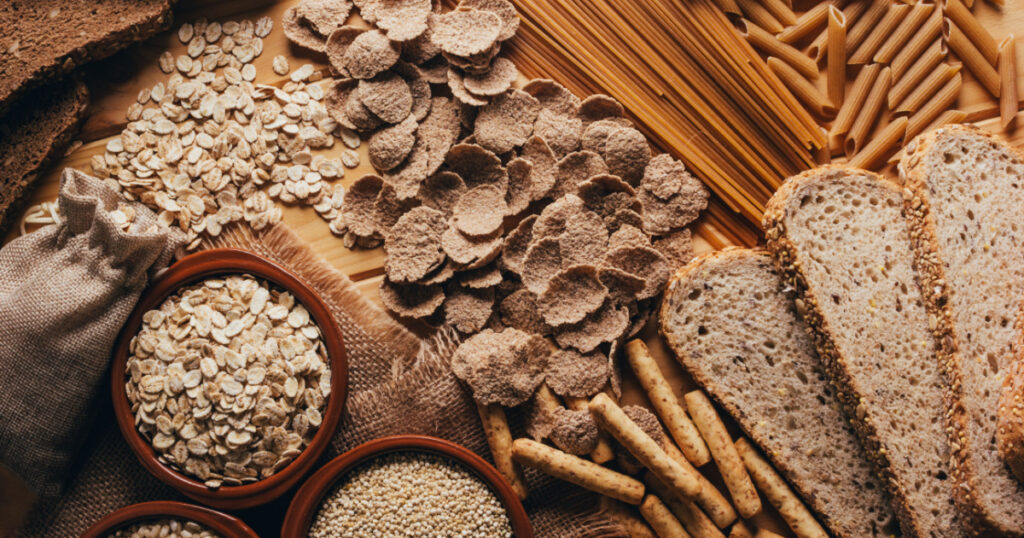
Whole grains become increasingly important as you age because of their fiber and nutrient content. A diet high in fiber helps maintain bowel function and decreases your risk for type 2 diabetes and heart disease. They also provide nutrients like B vitamins, potassium, and magnesium, which also reduce your risk for problems like obesity, heart disease, and diabetes [4].
3. Nuts About Good Eating Habits
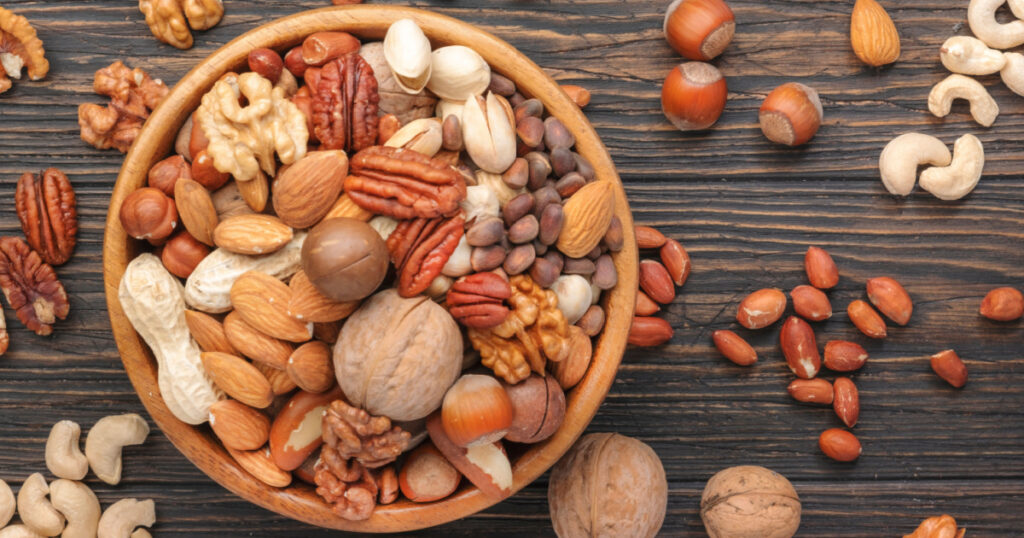
Nuts are a good source of protein, which may help you preserve muscle mass and motor function as you get older. They are also high in micronutrients including vitamin E, folate, calcium, copper, iron, magnesium, phosphorous, potassium, and zinc. Their high nutrient density makes nuts an easy way to improve the quality of your diet, which may reduce your risk for various age-related health issues. Of course, nuts are also very high in fat and calories, so moderation is important [5].
4. Eat Lentils, Too
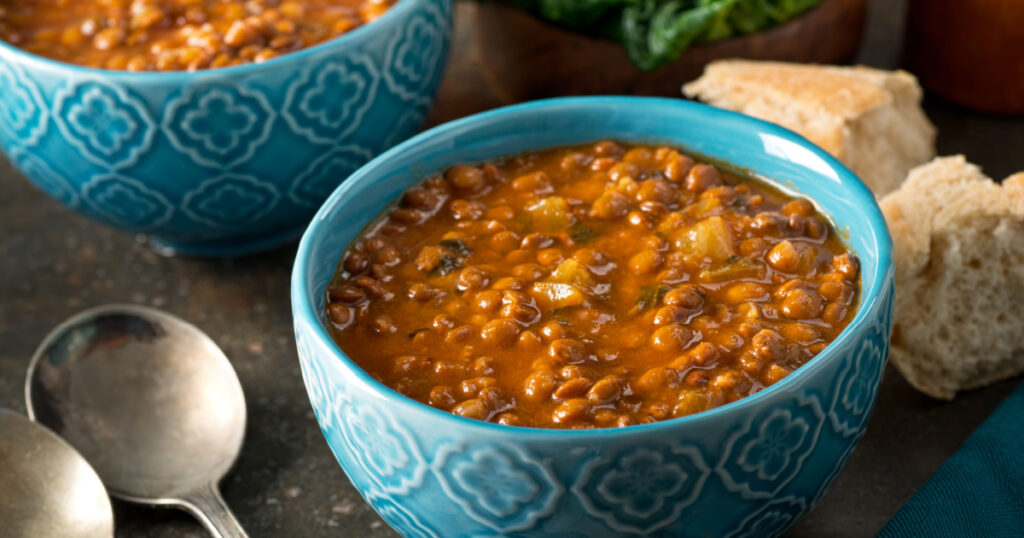
Lentils are an excellent source of fiber and folate. Several studies have demonstrated that eating lentils can reduce the instances of diabetes, obesity, cancers, and cardiovascular diseases. This is all thanks to their high nutrient value, as well as their polyphenol and bioactive compound content [6]. Lentils also contain selenium, which reduces DNA damage, and prolonged telomere length. This can help fight aging and prevent age-related diseases [7].
5. Eat Fermented Foods
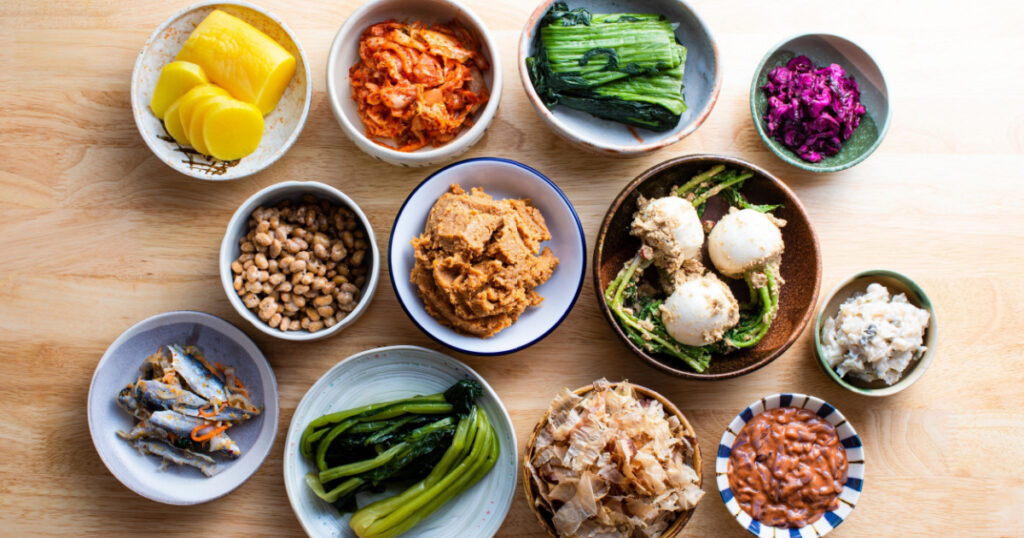
Fermented foods like kefir, yogurt, kombucha, and sauerkraut contain probiotics. These can help restore the good bacteria in your gut and may improve digestion [8]. This may be particularly helpful for women who are experiencing premenopausal symptoms. Additionally, there is a link between eating fermented foods having a lower risk of heart disease, high blood pressure, and high cholesterol [9].
Read: Drink Coffee After Breakfast, Not Before, for Better Blood Sugar Control
6. Eat Fatty Fish
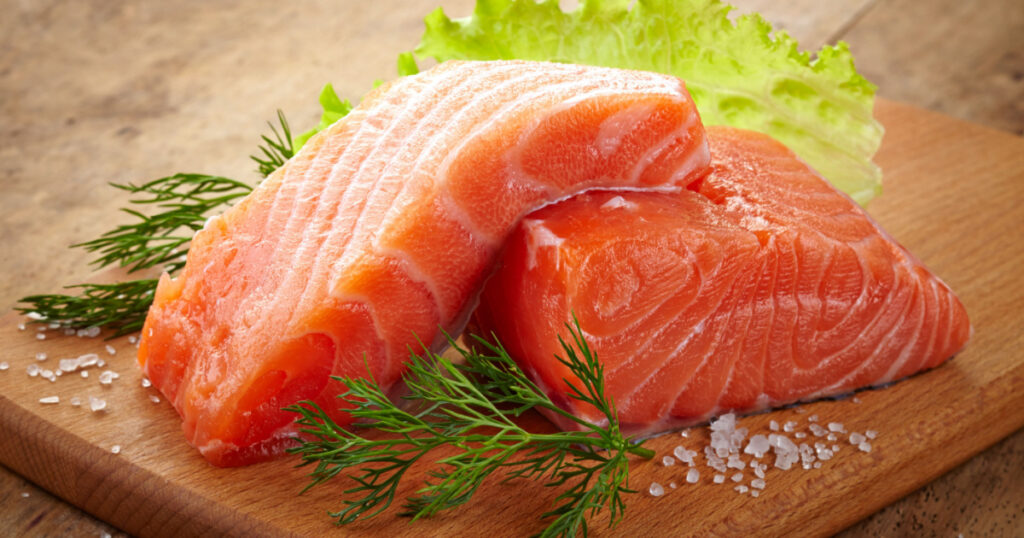
Fatty fish, like salmon, herring, lake trout, or sardines are high in omega-3 fats and vitamin D. Eating fatty fish can help prevent heart disease, certain types of cancer, diabetes, and high blood pressure [10].
7. Drink Green Coffee
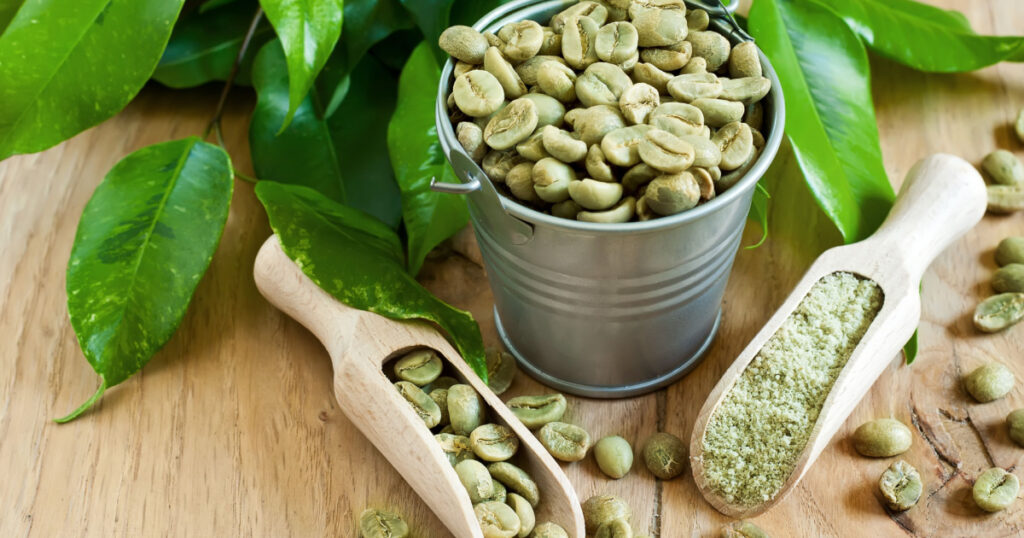
Green coffee beans are coffee beans that have not been roasted. Because of this, green coffee is higher in antioxidants. These beneficial compounds may slow the loss of telomere length, which can slow down the aging process and prevent age-related diseases [11]. Drinking regular coffee has its benefits as well.
8. Eat Earlier

A 2017 study from the University of Pennsylvania found that eating meals late at night has the potential to cause weight gain and impair fat metabolism. It can also increase insulin and cholesterol levels, and negatively affect hormonal markers for heart disease, diabetes, and other health problems. In the study, when participants ate between noon and eleven at night, they gained weight. When they ate between eight in the morning and seven at night, they did not. What caused this? The answer lies in your hormones. The researchers found that during the daytime eating condition, the hormone ghrelin peaked earlier. This is the hormone that stimulates appetite. Leptin, however, which keeps you satiated, peaked later. This suggests that when you eat earlier, you likely stay satiated longer which helps you eat less [12].
9. Get Adequate Calcium
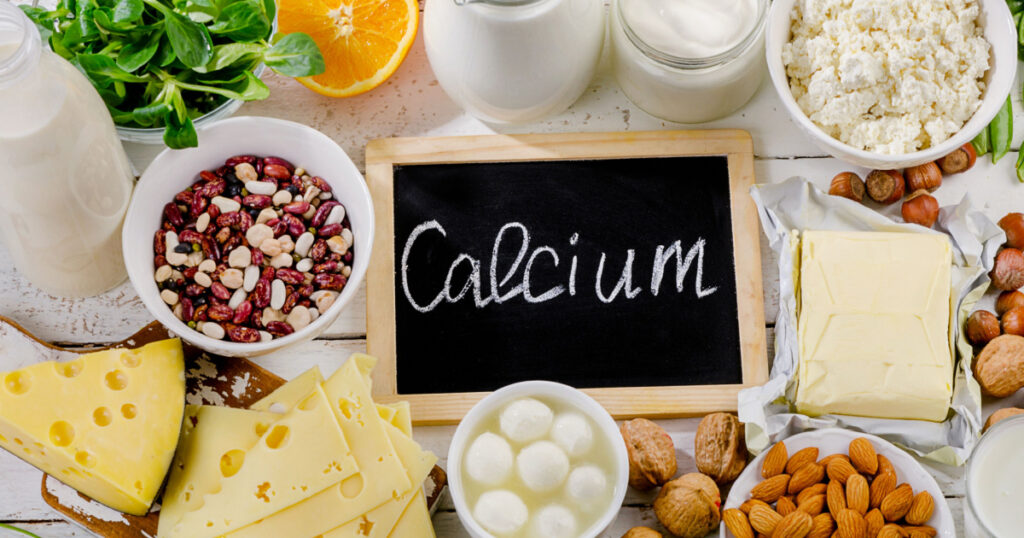
Calcium is the most abundant mineral in the body and is important for many functions, including maintaining bone mass and performing muscle contractions. As you age, however, it becomes more difficult to absorb calcium from food. 99 percent of your body’s calcium stores are in your bones and teeth. When you aren’t getting adequate calcium from food, your body will start taking it from your bones. This puts you at a higher risk for fractures and breaks [13]. Try including plenty of calcium-rich foods in your diet, such as dairy products, seeds, canned salmon and sardines, beans, and almonds. If you’re concerned about your bone health, talk to your doctor to determine if a supplement is a wise choice for you.
10. Eat The Rainbow
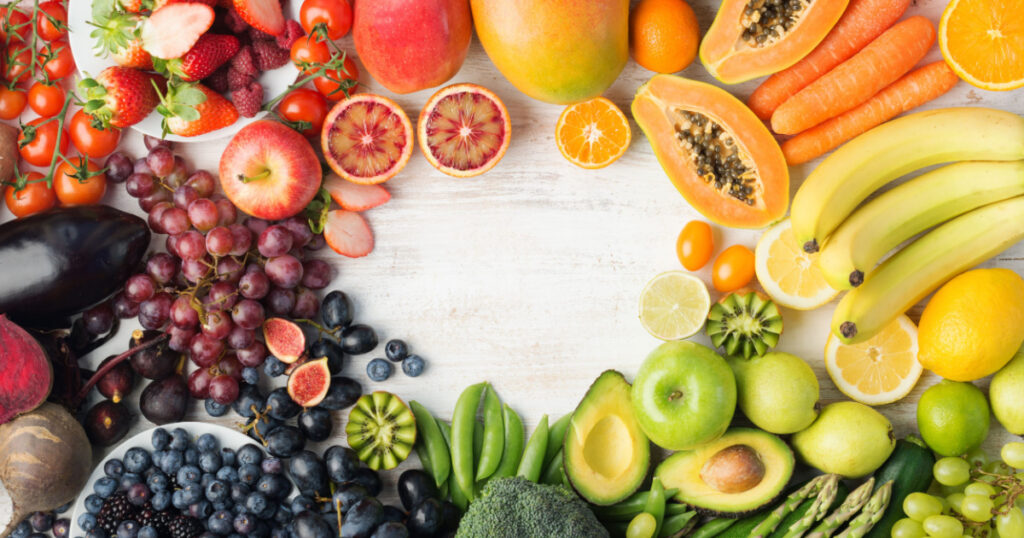
As you age, it is even more important to make sure you’re consuming a wide variety of fruits and vegetables in your diet. This will ensure that your body gets all the nutrients and phytochemicals it needs. More specifically, however, as you get older you should try to incorporate more blue and purple foods in your diet. Examples of these include blueberries, purple or red cabbage, and beets. These foods contain high amounts of anthocyanins, which is why their color is so bright. Studies have shown that this potent antioxidant can reduce your risk of cardiovascular disease [14]. They have also demonstrated an ability to improve memory and cognition and may improve symptoms of Dementia in older adults [15].
Good Eating Habits for Healthy Aging

Aging can be difficult. Getting older often comes with more aches and pains, lower energy, weight gain, and a higher risk for disease. It does not, however, have to be this way. While none of us are immune to the effects of aging, good eating habits can keep you feeling energetic so you can enjoy your life, and continue to participate in the activities that you love.
Keep Reading: 16 Fish You Should Consider Never Eating
Sources
- “[Aging, basal metabolic rate, and nutrition].” Pubmed. H Shimokata and F Kuzuya. July 1993.
- “The effect of weight loss by dieting or exercise on resting metabolic rate in overweight men.” NCBI. B Frey-Hewitt , K M Vranizan, D M Dreon, and P D Wood. April 1990.
- “B Frey-Hewitt , K M Vranizan, D M Dreon, and P D Wood.” NCBI. Klaas R Westerterp. August 2018.
- “Healthy eating for older adults.” Harvard
- “Can Nuts Mitigate Malnutrition in Older Adults? A Conceptual Framework.” NCBI. Sze-Yen Tan,Siew Ling Tey and Rachel Brown. October 6, 2018.
- “Polyphenol-Rich Lentils and Their Health Promoting Effects.” NCBI. Kumar Ganesan and Baojun Xu. November 18, 2017.
- “Selenium, aging and aging-related diseases.” Research Gate. Zhonglin Cai and Jianzhong Zhang.
- “A meta-analysis of probiotic efficacy for gastrointestinal diseases.” NCBI. Marina L Ritchie and Tamara N Romanuk. 2012
- “Effect of probiotics on blood pressure: a systematic review and meta-analysis of randomized, controlled trials.” Pubmed. Saman Khalesi, et al. October 2014.
- “Fish oil supplements, longevity and aging.” NCBI. João Pedro de Magalhães, et al. August 25, 2016.
- “Telomere shortening during aging: Attenuation by antioxidants and anti-inflammatory agents.” Science Direct. Kedar N. Prasad a, Meixia Wu b and Stephen C. Bondy. June 2017.
- “Timing Meals Later at Night Can Cause Weight Gain and Impair Fat Metabolism.” Penn Medicine. January 2, 2017.
- “The Role of Calcium in Human Aging.” NCBI. Judith A. Beto. January 16, 2015.
- The American Journal of Clinical Nutrition
- “Consumption of anthocyanin-rich cherry juice for 12 weeks improves memory and cognition in older adults with mild-to-moderate dementia.” Pubmed. Katherine Kent, et al. February 2017.
